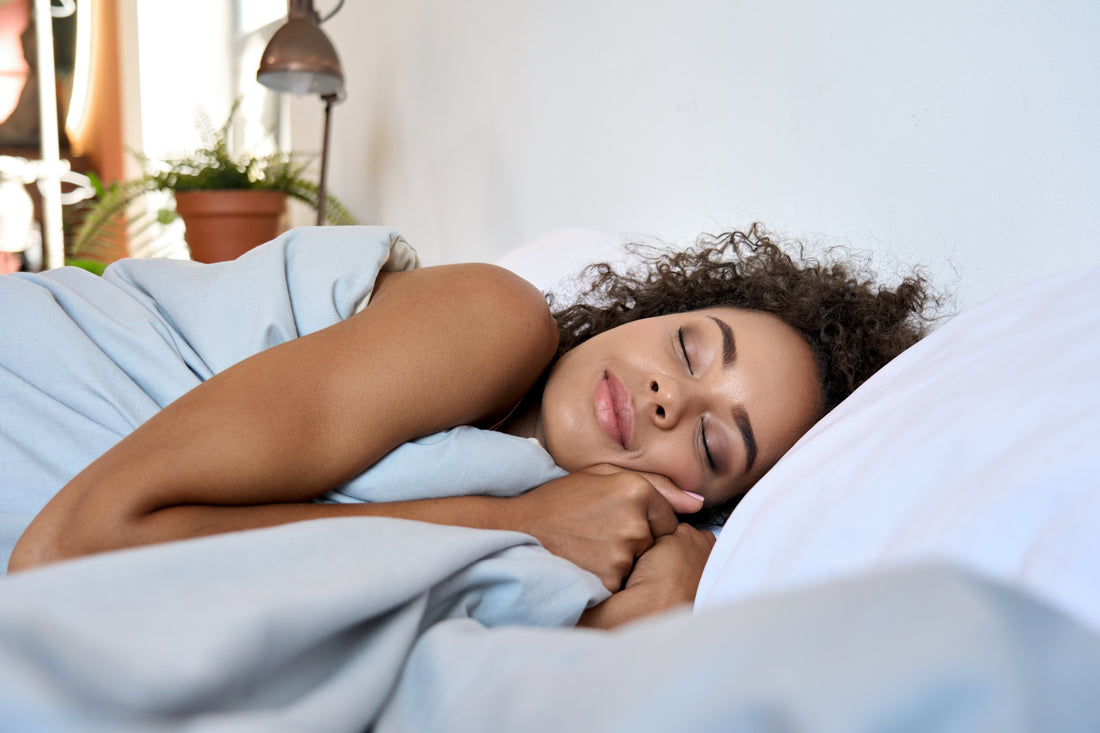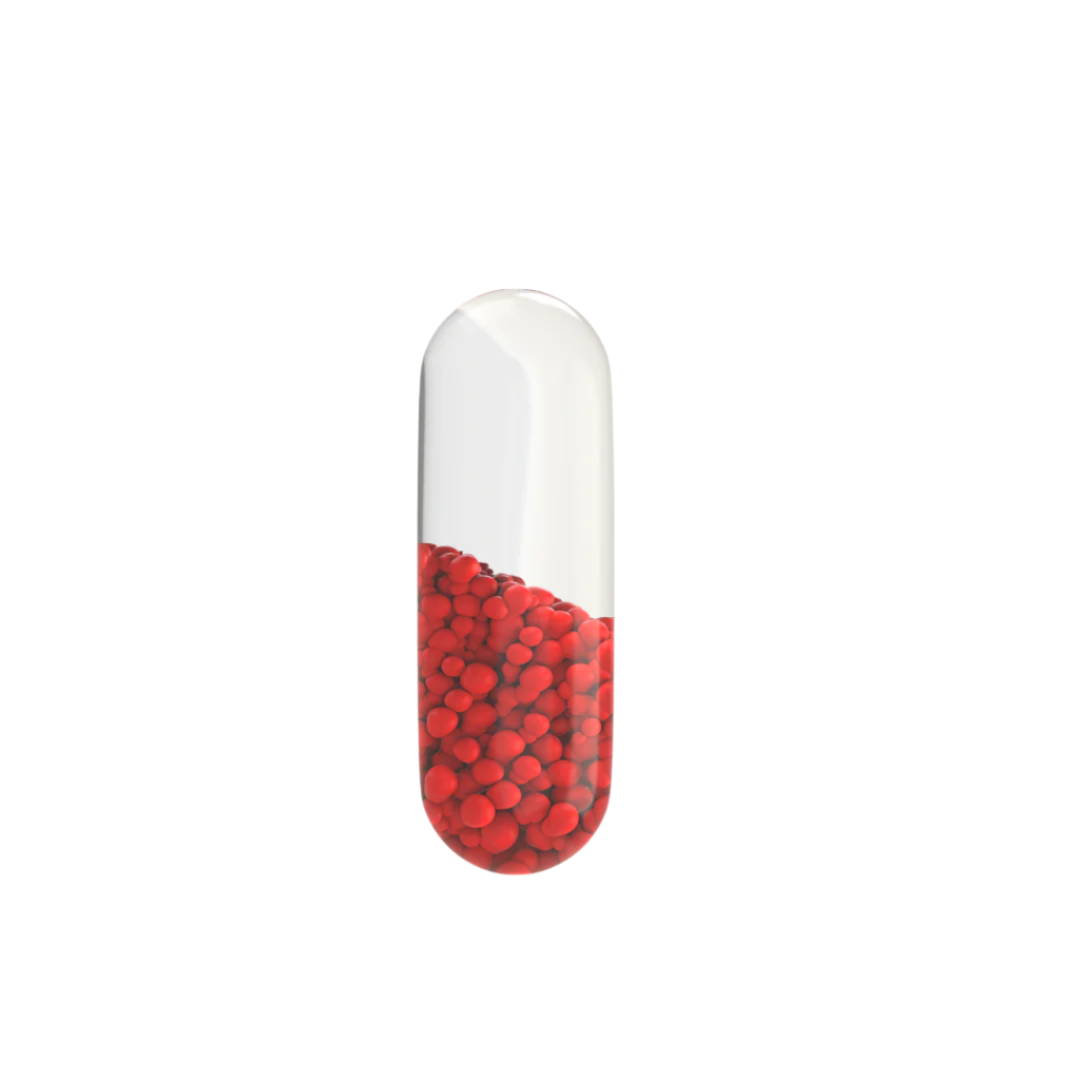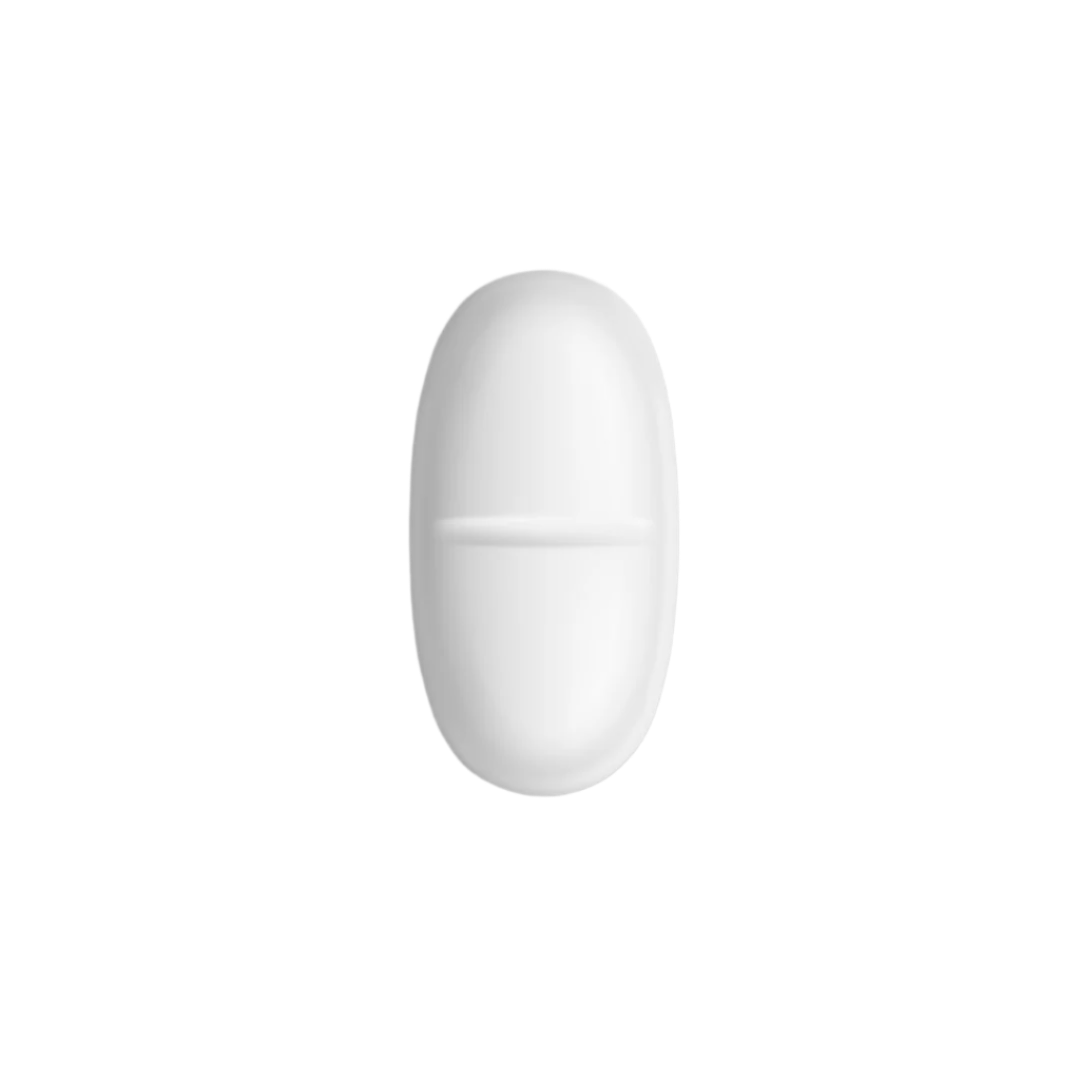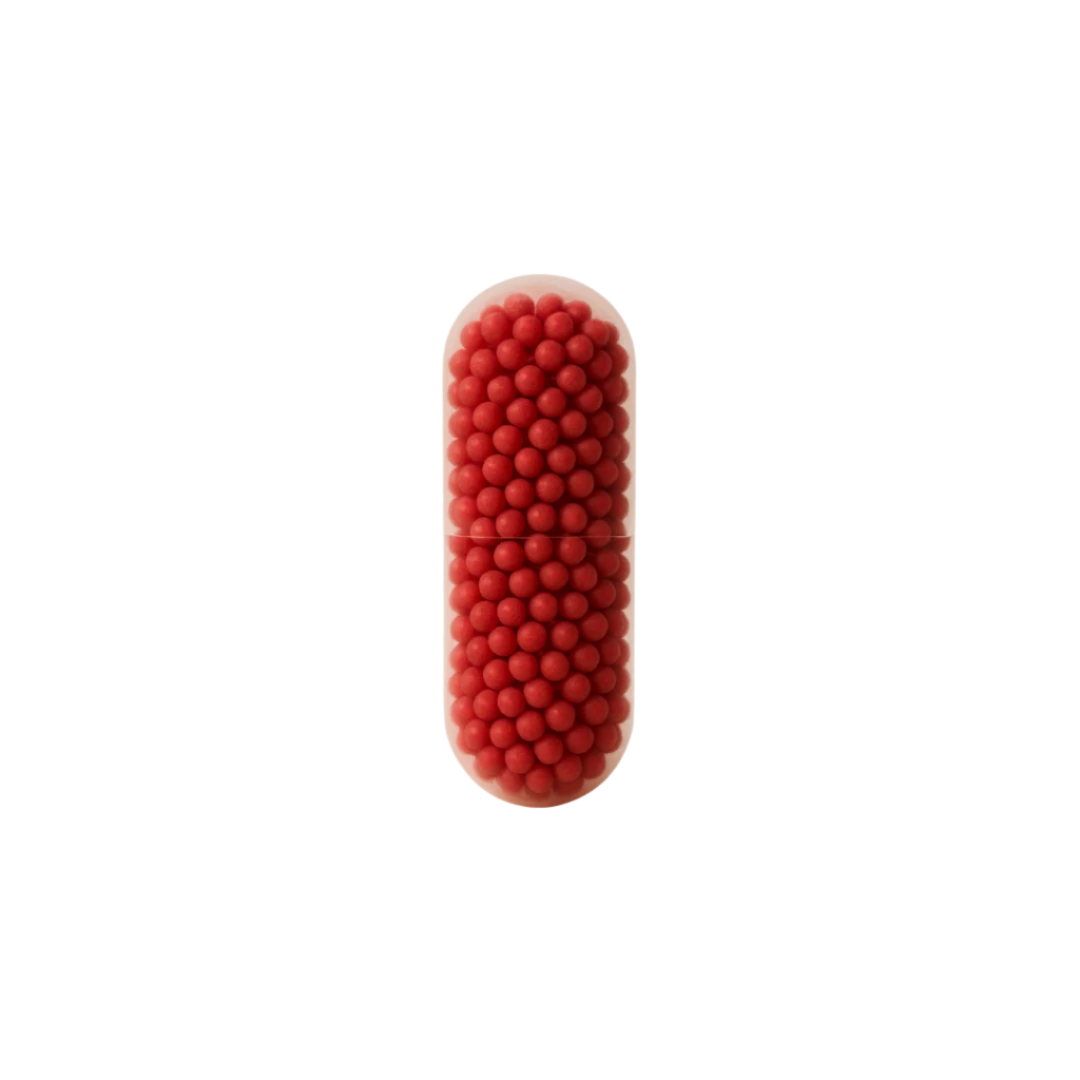Supplements for Natural Sleep: The Ten Best Natural Sleep Aids

If you're struggling to get a good night's sleep, you're not alone. According to the National Sleep Foundation, 50 to 70 million Americans are affected by some kind of sleep disorder. There are a variety of different factors that can contribute to difficulty sleeping, including stress, anxiety, pain, and other medical conditions.
The obvious answer would seem to be sleeping pills. However, these aren't for everyone. Many people don't like taking medication, and some sleeping pills can be addictive. Several side effects come with sleeping pills, including daytime drowsiness, headaches, and nausea.
So what's the alternative? Several natural sleep supplements can help you get a good night's sleep without any side effects. These natural sleeping pills or other remedies can help you fall asleep and stay asleep through the night.
In this article, we'll look at what a natural sleep aid is and why you may wish to choose one. Then list ten of the best natural sleep aids. Let's get started!
What Is a Natural Sleep Aid?
Natural sleep supplements are anything that helps you sleep without processed chemicals or other ingredients not found in nature. This can include supplements, herbs, and other substances traditionally used to help with sleep. Natural sleep remedies are generally considered safe and effective, with few side effects.
Natural sleep remedies can help with various conditions contributing to difficulty sleeping. These include stress, anxiety, pain, and other medical conditions. They can also help with jet lag and shift work sleep disorder.
Why Choose a Natural Product for Your Sleep Remedies?
There are a few critical differences between Vitamins for sleep and sleeping pills. The most obvious difference is that natural sleep supplements are natural. This means they're generally considered safe and effective, with few side effects. On the other hand, sleeping pills can have many side effects, including daytime drowsiness, headaches, and nausea.
Another key difference is that vitamins for sleep are not addictive like some sleeping pills. This is because natural sleep aids don't contain chemicals known to be addictive. On the other hand, sleeping pills often contain chemicals like benzodiazepines, which can be addictive.
Natural sleep remedies can also be used on an as-needed basis, whereas sleeping pills are typically taken every night. This is because natural sleep aids don't have the same risk of tolerance or dependency as sleeping pills.
How Do Sleep Supplements Work?

Natural sleep supplements work by promoting relaxation and improving sleep quality. There are several different ways in which they do this. Some vitamins for sleep contain sedative substances, such as melatonin or valerian root. Others work by reducing anxiety or pain, making it easier to fall asleep and stay asleep through the night.
What Are the Best Sleep Aids That Are All-natural?
Several natural sleep aids can help you get a good night's sleep. Here are ten of the best:
1. Melatonin
One of the key players in regulating this sleep-wake cycle is the hormone melatonin. Melatonin is produced naturally by the body, and its levels rise and fall in response to light exposure. In other words, when it gets dark outside, your body produces more melatonin in preparation for sleep.
This is why melatonin supplements have become sleep remedies, particularly when the melatonin cycle is disrupted, such as with jet lag. Supplementing with melatonin can help to re-establish a regular sleep pattern, making it easier to fall asleep and stay asleep through the night.
But melatonin does more than regulate the sleep-wake cycle. Research has shown that this hormone also plays a role in the following:
- Increasing sleep duration
- Improving daytime sleep quality and quantity in shift workers
- Improving overall sleep quality in people with sleep disorders
While more research is necessary to understand the full extent of melatonin's health benefits, this hormone holds promise as one of the best natural sleep aids for improving sleep.
2. Valerian Root
Valerian root is a popular herbal remedy for insomnia and anxiety. It is sometimes called nature's Valium.
Valerian root is a herb used for centuries to treat sleep problems. It is thought to work by increasing levels of gamma-aminobutyric acid (GABA) in the brain. GABA is a neurotransmitter that helps regulate nerve cells and has a calming effect on the nervous system.
Several studies have shown valerian root can help improve sleep quality and reduce the time it takes to fall asleep. However, results from these studies have been mixed.
Valerian root also effectively treats anxiety and pain, contributing to difficulty sleeping. And because valerian root is non-addictive and doesn't cause daytime drowsiness, it is considered safe and one of the best sleep aids.
3. Chamomile

Chamomile is a plant in the daisy family. It has been used for a long time in traditional medicine and is one of the best natural sleep aids. Chamomile tea is perhaps the most well-known way to consume this herb, but it is also available in supplement form. Chamomile tea contains small amounts of an antioxidant called apigenin, which binds to specific receptors in your brain that are involved in the sleep-wake transition.
These properties make chamomile an effective natural sleep aid for people struggling with insomnia or other sleep disorders caused by stress, anxiety, or pain.
Drinking chamomile tea before bed may help you fall asleep faster and sleep more soundly due to its calming effect. The plant promotes relaxation, reduces anxiety, and has pain-relieving and anti-inflammatory effects. These properties make chamomile amongst the most effective sleep supplements for people struggling with insomnia or other sleep disorders caused by stress, anxiety, or pain.
As a bonus, chamomile tea is also caffeine-free, essential because caffeine can interfere with sleep.
To try chamomile tea for better sleep, drink one cup 30 minutes to one hour before bedtime. You can find chamomile tea bags at most grocery stores or online. Be sure to choose a caffeine-free tea that doesn't contain other ingredients that could keep you awake, such as mint.
4. Magnesium
Magnesium is involved in over 300 biochemical reactions occurring in the human body. This essential mineral helps with various functions, such as muscle and nerve function, regulating blood sugar levels and controlling blood pressure.
Given how vital magnesium is, it's no surprise that many people are deficient in this crucial nutrient - especially those who experience chronic stress or anxiety. That's because when people undergo stress, their bodies use magnesium quicker than usual.
Magnesium deficiency can lead to several different health problems, including:
- Muscle cramps
- Fatigue
- Headaches
- Anxiety
- Insomnia
Some research suggests that magnesium could improve the quality of your sleep. A review of three studies found that magnesium supplementation might reduce how long it takes to fall asleep. In a separate 2011 study, participants who took a supplement containing 225mg of magnesium seemed to sleep better than those who took a placebo.
Maintaining healthy magnesium levels can improve sleep quality, and a supplement is one way to do this. You can also up your intake by adding magnesium-rich foods like dark leafy greens, nuts, and seeds to your diet.
Additionally, magnesium has shown efficacy in treating other types of sleep disorders, such as restless leg syndrome and night terrors. This makes it one of the overall best sleep aids.
5. L-theanine
This amino acid is found naturally in tea leaves, and consuming it has been shown to promote relaxation and improve sleep quality. This amino acid is what gives green tea its unique taste and smell.
Animal studies suggest that L-theanine is more effective when taken in combination with GABA or magnesium. The acid increases levels of GABA, serotonin, and dopamine in the brain, with these neurotransmitters playing a role in regulating mood, sleep, and anxiety.
Supplementing with L-theanine can help to reduce stress and improve sleep quality, making it one of the best natural sleep aids. It is also effective in treating anxiety disorders and promoting cognitive health.
6. Passionflower

Passionflower is a climbing vine that is used as a herbal remedy. It can be used to treat anxiety, insomnia, and other conditions and has sedative properties. This plant's leaves, flowers, and stems make passionflower tea, supplements, and extracts. Passionflower works by increasing levels of GABA in the brain.
Although animal studies suggest that passionflower can help with sleep, there is limited research on its effects in humans. Some studies have found that passionflower may improve self-reported measures of sleep quality. Still, other studies haven't found any significant effects of passionflower on objective measures of sleep (such as sleep efficiency or time spent in deep sleep).
The reason for the mixed results of human studies on passionflower and sleep is unknown. The form of passionflower consumed may be a contributing factor. Passionflower supplements are typically made from dried herbs. In contrast, passionflower tea is usually brewed with fresh or dried leaves and flowers. Another possibility is that individual differences in how people respond to passionflower could explain the conflicting results of human studies.
Choosing a high-quality supplement is important if you're interested in trying passionflower for sleep. Look for a product tested for purity and potency by an independent, third-party lab. Passionflower is generally considered safe when taken in small doses. However, it can cause side effects like headaches, dizziness, and gastrointestinal distress.
7. Glycine
Glycine is an amino acid found in many foods, including meat, fish, eggs, and dairy products. It can also be taken as a supplement. Glycine has a variety of health benefits, including improved sleep quality.
Glycine works by lowering body temperature, which signals to the body that it is time to sleep. Research has shown that people who consume glycine before bed report feeling less fatigued and more alert the following day.
A 2007 study found that glycine can improve sleep quality in people with insomnia by taking measurements of participants' brain waves, heart rate, and breathing while they slept. The research showed that those who took 3g of glycine before bedtime improved their objective measures of sleep quality compared to the placebo group. In addition, glycerin supplements helped participants fall asleep faster.
8. Lavender
Lavender is a flowering plant found on almost all continents and is another classic of traditional medicine. This plant's purple flowers, leaves, and stems are used to make lavender oil, which is used in many different products, including soaps, lotions, and candles.
Lavender's soothing fragrance is believed to enhance sleep. Several studies suggest that simply smelling lavender oil shortly before bedtime may be enough to improve sleep quality in those with mild insomnia. It also has analgesic, anti-inflammatory, and antioxidant effects.
While lavender aromatherapy is generally considered safe, taking it orally has been linked to nausea, belching, and diarrhoea in some people. Essential oils are meant for aromatherapy—not ingestion. Additionally, only a few studies have looked at the effects of lavender supplements on sleep. So more research must be done before any firm conclusions can be drawn.
Despite these limitations, lavender's pleasant fragrance and lack of severe side effects make it an appealing natural treatment for sleep issues — especially when used in aromatherapy. If you're interested in trying lavender for better sleep, purchase an essential oil diffuser to enjoy its calming scent as one of the best natural sleep aids.
9. Lemon Balm

Lemon balm is a perennial herb in the mint family native to Europe, North Africa, and Asia. The leaves of this plant have a lemon-like fragrance and can be used to make tea. Lemon balm supplements are also available.
Lemon balm has a calming, anxiety-reducing effect that can help you relax and fall asleep more easily. In addition, lemon balm tea is thought to relieve cramps and improve sleep quality. Studies have shown that drinking this tea before bed can shorten the time it takes to fall asleep and increase overall sleep time.
If you're struggling with insomnia or other sleep problems, lemon balm tea is a safe, natural remedy worth trying. This calming herbal tea may help you get restful sleep and be one of the best sleep aids out there.
10. Hops
Hops are perhaps best known as an ingredient in beer, but did you know it's also one of the best sleep aids? This versatile plant contains a chemical called lupulin that has sedative effects. Hops supplements and teas are available for purchase online.
Several scientific studies suggest that hops have sedative effects. For example, researchers found that women who drank hops improved their sleep quality and reduced anxiety levels. Another study linked drinking non-alcoholic beer to improved sleep quality among university students.
Hops can be brewed as tea. You can also add fresh or dried hops to hot water and allow it to infuse for several hours before drinking.
If you want to try hops for sleep, purchase dried hops, hop tea bags, or hop supplements from a reputable source. This herb is generally considered safe when taken orally in small doses. However, it can cause side effects, such as headaches, nausea, and dizziness. Therefore, starting with a low dose is best and increasing gradually as needed.
What if You Have Trouble Waking Up?
While some people have little difficulty falling asleep, waking up can be a real problem. Those with conditions such as sleep inertia or sleep apnea can find it extremely difficult to rouse themselves in the morning. These conditions can be as debilitating as insomnia, affecting productivity, mental health and quality of life.
Natural remedies for sleep can also help with these conditions.
One such natural sleep aid is B・SYNC ON. Our wholly natural wake-up supplements are designed to help you wake refreshed without the grogginess associated with many over-the-counter sleep aids. B・SYNC ON is a clinically-proven natural supplement containing three ingredients that have been shown to help you feel refreshed and energised on waking.
- Caffeine: Caffeine is a natural stimulant found in coffee, tea and chocolate. It works by blocking the sleep-inducing chemical adenosine from binding to its receptors in the brain. This makes you feel more alert and awake.
- B Vitamins: B vitamins are essential for energy production and metabolism. They help convert food into fuel the body can use to produce energy.
- Zinc: Zinc is a mineral that plays a role in many biochemical reactions in the body. It is necessary for the proper function of over 300 enzymes. Zinc is also involved in regulating sleep and wakefulness.
B・SYNC ON uses a seven-hour delayed released technology, meaning you can take it before you sleep and wake full of energy without grogginess. To learn more about how B・SYNC ON can help you wake feeling refreshed, visit the rest of our website for more in-depth information.
Conclusion
Sleep is vital for our overall health and well-being. If you're struggling to get a good night's rest, several natural sleep aids may help you fall asleep and stay asleep. Some of the best sleep aids include chamomile, valerian, and hops. If you're unsure which sleep remedies are suitable, speak to a healthcare professional.
FAQs
What are the best sleep aids?
There is no one-size-fits-all answer to this question, as the best sleep aid will vary depending on the person’s individual sleep needs. However, some of the most popular sleep aids include herbs such as chamomile, valerian, and hops and nutritional supplements such as magnesium and melatonin.
What are the side effects of sleep aids?
The side effects of sleep aids vary depending on the type and dosage of sleep aid. Some sleep aids may cause drowsiness, dizziness, headaches, or upset stomach.
How long can I take a sleep aid?
Most sleep aids are safe for short-term use (up to four weeks). If you plan on taking a sleep aid for longer than four weeks, speak to a healthcare professional.







